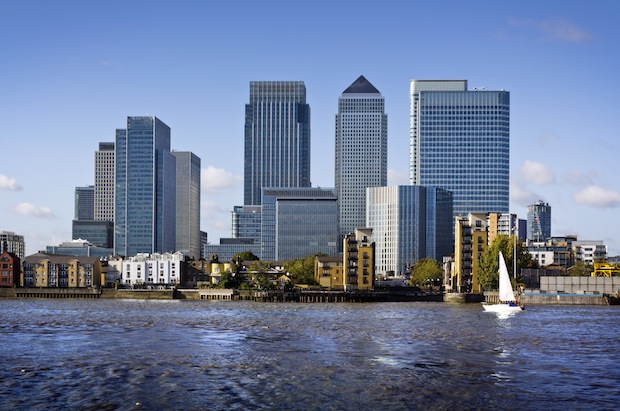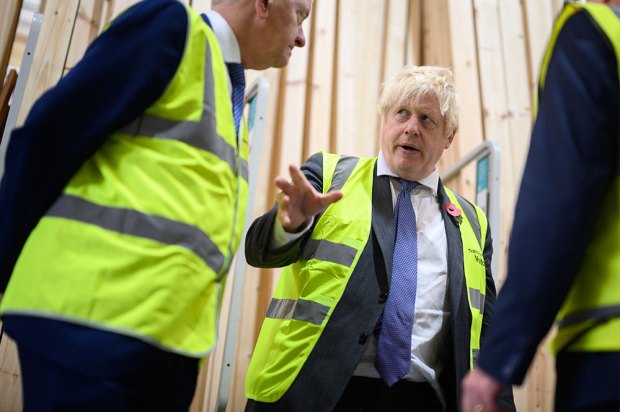By and large it was a good week for the big banks — underpinned by encouraging news from the wider economy, in which every little uptick brings a few more zombie borrowers back to the land of the living.
Lloyds returned to profit, promised to start paying decent dividends again and declared itself oven-ready for return to the private sector, with the market anticipating an immediate sale to institutions of a first tranche of the taxpayers’ 39 per cent stake. HSBC reported varied performance around the world but still clocked up a fat result for the half-year — and asked the Vatican to close its account as part of a sweep against money laundering.
RBS’s Treasury masters took note of James Forsyth’s recent essay on the ‘colonial’ takeover of British public life and picked a sensible Kiwi, Ross McEwan, to succeed Stephen Hester as chief executive — and on a smaller pay packet. RBS also moved back into the black but reprivatisation is still a way off, and I sense the pressure from George Osborne on that front has receded; Hester has dealt with the most toxic problems, and McEwan can now get on with the re-engineering of the core retail business where his own expertise lies.
And then there’s Barclays, whose clean-hands chief executive, Antony Jenkins, has made a good impression with ministers as far as changing the bank’s culture is concerned but has lost an argument as to how much equity it needs to meet the 3 per cent ‘leverage ratio’ imposed by the Prudential Regulation Authority, and how soon. The result is a £5.8 billion rights issue, causing yet more pain to loyal shareholders, plus further shrinkage of riskier parts of the balance sheet. But that’s all to the good in the long run, and the fact that (despite a dip at Barclays due to mis-selling provisions) the big four banks made first-half profits of some £16 billion between them, compared with a £10 billion mixed bag last year, is at the very least a reassuring note on which we can all depart for our holidays.
Lords of money
‘More gongs for bosses’ has been a theme of this column ever since I pointed out long ago that the late Sir Denis Rooke of British Gas was the only corporate chief ever to be appointed to the Order of Merit. Business is far more often disparaged than honoured in this country — so I’ve done my best to take a positive view of the latest list of new peers, in which the whiff of money has reignited suspicion of a conspiracy between the parties to continue the century-old practice of rewarding major donors with ermine. I was reminded of a conversation I once had with a Conservative party fundraiser about a businessman who looked every inch a Tory but accepted a Lib Dem peerage. ‘Why?’ I asked. ‘Too mean to pay up for one of ours,’ came the reply.
Gongs salute achievement in the day job while in some cases also expressing thanks for a political cheque. A peerage is more problematical because it implies special worthiness, ahead of all other candidates, to hold forth from the red benches and even participate in government. Industrialists and entrepreneurs may be more disciplined long-term decision-makers than career politicians, more grounded in their economic views, but if their elevation happens to follow the handing over of large cheques, they rightly attract sceptical scrutiny.
That hasn’t impeded the ennoblement of a pretty rum bunch in recent years — and I think we should wait and see what nightclub operator James Palumbo has to offer in the Lib Dem interest besides the £700,000 he’s reported to have donated. Sir Anthony Bamford, on the other hand, may have given as much as £5 million to the Conservatives but he has also presided since 1975 over the digger manufacturer JCB, a British export success that was started (on the day Anthony was born) by his father in a lock-up garage in 1945 and now employs 10,000 people. Perhaps if he hadn’t been so generous to his political friends, he would have been recognised sooner.
And I think we should hail Labour’s £1.3 million money-lord Willie Haughey as an authentic hero of entrepreneurship. Brought up in the Gorbals, trained as an apprentice engineer, Haughey built a business supplying pub cellar cooling systems that has also gone global and grown to employ more than 10,000. He’s a big fish in Glasgow Labour, but has shaken off the sort of ‘cash for favours’ allegations that come with the territory. More intriguingly, he seems to have played a shadowy part in the rise and fall of former city council leader Steven Purcell, who quit politics in 2010 after allegations of cocaine use — and after a meeting in a windswept East Kilbride car park (Haughey said he wasn’t there, other sources thought he was).
A man of action, then, and a self-made wealth creator among the Old Labour shop stewards who usually speak for Glasgow in the upper house. How fortunate we are that such diverse business talents can afford the price of entry.
En vacances
President François Hollande says he won’t help David Cameron reform the EU. But with his approval rating down to a dismal 27 per cent, no one much cares what Hollande says about anything these days — least of all France’s business leaders, whose distinctly Anglo-Saxon response to socialist paralysis at home is to hunt for acquisitions abroad. After last week’s coup by the advertising giant Publicis, swallowing US rival Omnicom, this week Schnieder -Electric has paid £3.4 billion for the UK engineering group Invensys — the residue of two venerable companies, BTR (originally British Tyre & Rubber) and Siebe, the Victorian inventor of the sealed diving -helmet.
As it happens, I’ll be in France for the rest of this month: if I spot the president on one of his perspiring photo-ops in the local market, I’ll offer him an Anglo-Saxon greeting from Spectator readers.
Got something to add? Join the discussion and comment below.
Get 10 issues for just $10
Subscribe to The Spectator Australia today for the next 10 magazine issues, plus full online access, for just $10.
You might disagree with half of it, but you’ll enjoy reading all of it. Try your first month for free, then just $2 a week for the remainder of your first year.















Comments
Don't miss out
Join the conversation with other Spectator Australia readers. Subscribe to leave a comment.
SUBSCRIBEAlready a subscriber? Log in